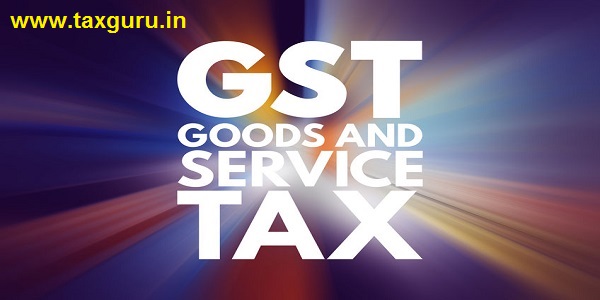Section 7 Deals with Scope of supply under GST and Section 9 deals with Levy and collection of Taxes under GST. Article analyses Section 7 and 9 of CGST Act, 2017.
1) What is GST
GST is an Indirect Tax that levied on Supply of of Goods or Services or Both. Indirect tax is the tax that imposed on Goods or services while direct tax is imposed on Income or profit. Before 1st July 2017, there were many Indirect taxes that were levied and collected by state and central government. But with effect from 1st July 2017, a new Indirect tax law came in to force subsuming around 13 indirect taxes to it i.e GST Act 2017(Goods and Services Tax). GST is well known as one nation one tax as it subsumed various indirect tax and formed one indirect tax which is applicable to all states and union territory in India.
2) When GST shall be Levied
To understand this we have to read the charging section , Section 9 of CGST Act , Section 5 of IGST ACT and the respective SGST Act.
Section 9(1) of CGST ACT 2017 reads as follows:
(1) Subject to the provisions of sub-section (2), there shall be levied a tax called the central goods and services tax on all intra-State supplies of goods or services or both, except on the supply of alcoholic liquor for human consumption, on the value determined under section 15 and at such rates, not exceeding twenty per cent., as may be notified by the Government on the recommendations of the Council and collected in such manner as may be prescribed and shall be paid by the taxable person.
Similarly section 5(1) of IGST Act 2017 reads as follows:
Subject to the provisions of sub-section (2), there shall be levied a tax called the integrated goods and services tax on all inter-State supplies of goods or services or both, except on the supply of alcoholic liquor for human consumption, on the value determined under section 15 of the Central Goods and Services Tax Act and at such rates, not exceeding forty per cent., as may be notified by the Government on the recommendations of the Council and collected in such manner as may be prescribed and shall be paid by the taxable person:
Provided that the integrated tax on goods imported into India shall be levied and collected in accordance with the provisions of section 3 of the Customs Tariff Act, 1975 on the value as determined under the said Act at the point when duties of customs are levied on the said goods under section 12 of the Customs Act, 1962.
Analysis of the Statutory Provision
So as per section 9(1) of CGST Act, CGST shall be levied on Intrastate Supply of Goods or Services or Both, correspondingly same provision is laid down in SGST Act also. Similarly as per Section 5(1) of IGST Act shall be levied on Interstate of Supply of Goods or Services or both.
So for levying GST, the following conditions must be satisfied-
- Taxable Goods or Services
- Supply (either interstate or Intrastate)
The aforementioned conditions are elaborated here under.
Condition 1 : Taxable goods or services
Goods:
Section 2 (52) of CGST Act defines goods, means every kind of movable property other than money and securities but includes actionable claim, growing crops, grass and things attached to or forming part of the land which are agreed to be severed before supply or under a contract of supply.
Services:
Similarly Section 2(102) of CGST Act defines services, means anything other than goods, money and securities but includes activities relating to the use of money or its conversion by cash or by any other mode, from one form, currency or denomination, to another form, currency or denomination for which a separate consideration is charged;
Taxable Goods or services :
Taxable Goods or Services are the goods or services which not exempted form tax by central government by using its power vested to it under Section 11(1) of CGST Act.
So to decide whether GST shall be levied or not, the 1st condition must be satisfied that is it must be taxable goods or services , otherwise GST shall not be levied.
Supply:
This is the crux of GST Levy, even though it is taxable goods or services, for levying GST there must be supply of such goods or services . It is a new concept introduced by GST Act which was not there in previous indirect tax regime. In previous regime, tax was levied on sale or manufacture but now GST is levied on Supply. So it is very important to understand the term Supply. Let us have a blink on the statutory provision. Section 7 of CGST Act defines Supply as follows:
7 (1)
(a) all forms of supply of goods or services or both such as sale, transfer, barter, exchange, license, rental, lease or disposal made or agreed to be made for a consideration by a person in the course or furtherance of business;
(b)Importation of services, for a consideration whether or not in the course or furtherance of business and
(c)The activities specified in Schedule I, made or agreed to be made without a consideration.
(1A) where certain activities or transactions constitute a supply in accordance with the provisions of sub section (1), they shall be treated either as supply of goods or supply of services as referred to in Schedule II.
(2)Notwithstanding anything contained in sub-section (1),––
(a) activities or transactions specified in Schedule III; or
(b) such activities or transactions undertaken by the Central Government, a State Government or any local authority in which they are engaged as public authorities, as may be notified by the Government on the recommendations of the Council
Shall be treated neither as a supply of goods nor a supply of services.
(3)Subject to sub-sections (1), (1A) and (2), the Government may, on the recommendations of the Council, specify, by notification, the transactions that are to be treated as – (a) a supply of goods and not as a supply of services; or (b) a supply of services and not as a supply of goods.
Analysis
So for supply there must be two things, one is consideration and another is it should be done in the course and furtherance of business. Section 2(17) defines business and section 2(31) defines Consideration. Similarly section 7(1) (b) states import of service for personal purpose with consideration can be construed as supply. However CG by using the power vested in section 11 of CGST Act has exempted import of service for personal purpose except OIDAR service (Online Information Database Access and Retrieval) Services.
Similarly section 7(1) ( c) states that the transaction mentioned in Schedule I shall be regarded as supply even though there is no Consideration. The transactions mentioned in schedule I are as below.
a) Permanent transfer or disposal of business assets where input tax credit has been availed on such assets
b) Supply of goods or services or both between related persons or between distinct persons as specified in section 25, when made in the course or furtherance of business: Provided that gifts not exceeding fifty thousand rupees in value in a financial year by an employer to an employee shall not be treated as supply of goods or services or both.
c) Supply of goods – (a) by a principal to his agent where the agent undertakes to supply such goods on behalf of the principal; or (b) by an agent to his principal where the agent undertakes to receive such goods on behalf of the principal.
d) Import of services by a taxable person from a related person or from any of his other establishments outside India, in the course or furtherance of business .
Similarly section 7 (1A) says , whenever there is any supply, whether it is supply of goods or services, shall be determined as per schedule II.
Similarly Section 7(2) states that the items mentioned in Schedule III shall neither be regarded as supply of goods nor supply of services. The items mentioned in schedule III are discussed as below-
i) Services by an employee to the employer in the course of or in relation to his employment.
ii) Services by any Court or Tribunal established under any law for the time being in force. Explanation : The term “Court” includes District Court, High Court and Supreme Court.
iii) (a) Functions performed by the Members of Parliament, Members of State Legislature, Members of Panchayats, Members of Municipalities and Members of other local authorities;
(b) Duties performed by any person who holds any post in pursuance of the provisions of the Constitution in that capacity; or
(c) Duties performed by any person as a Chairperson or a Member or a Director in a body established by the Central Government or a State Government or local authority and who is not deemed as an employee before the commencement of this clause.
(d) Services of funeral, burial, crematorium or mortuary including transportation of the deceased.
(e) Sale of land and, subject to paragraph 5(b) of Schedule II, sale of building
(f) Actionable claims, other than lottery, betting and gambling.
(g) Supply of goods from a place in the non-taxable territory to another place in the non-taxable territory without such goods entering into India.
(h) Supply of warehoused goods to any person before clearance for home consumption. Explanation –– For the purposes of paragraph 8, the expression “warehoused goods” shall have the same meaning as assigned to it in the Customs Act, 1962.
(I) Supply of goods by the consignee to any other person, by endorsement of documents of title to the goods, after the goods have been dispatched from the port of origin located outside India but before clearance for home consumption
3) When to charge CGST & SGST/UTGST and when to charge IGST
The type of tax to be levied depends upon the type of transaction . CGST & SGST/UTGST shall be levied on Intrastate supply of Goods or Services or both. Similarly IGST shall be levied on Interstate supply of goods or services or both.
4) What is interstate supply.
Section 7 of IGST Act defines Interstate supply as follows.
a) When the location of the supplier and place of supply are in two different states/union territories.
b) Import of goods till they cross the custom frontier
c) Import of service
d) Supplier is in india and place of supply is in outside india
e) Supply to or from SEZ or SEZ developer.
f) Supply in the taxable territory (I.e India) but not an Intrastate supply.
5) What is intrastate supply
The supply which is not an interstate supply and not specifically covered anywhere else shall be regarded as intrastate supply.
6) What is Import of Goods
Bringing goods from outside India to India
7) What is Import of Service:
For import of service the following conditions must be satisfied:
i) Location of the supplier is in outside India
ii) Location of the recipient is in India
iii) Place of supply is in India.






